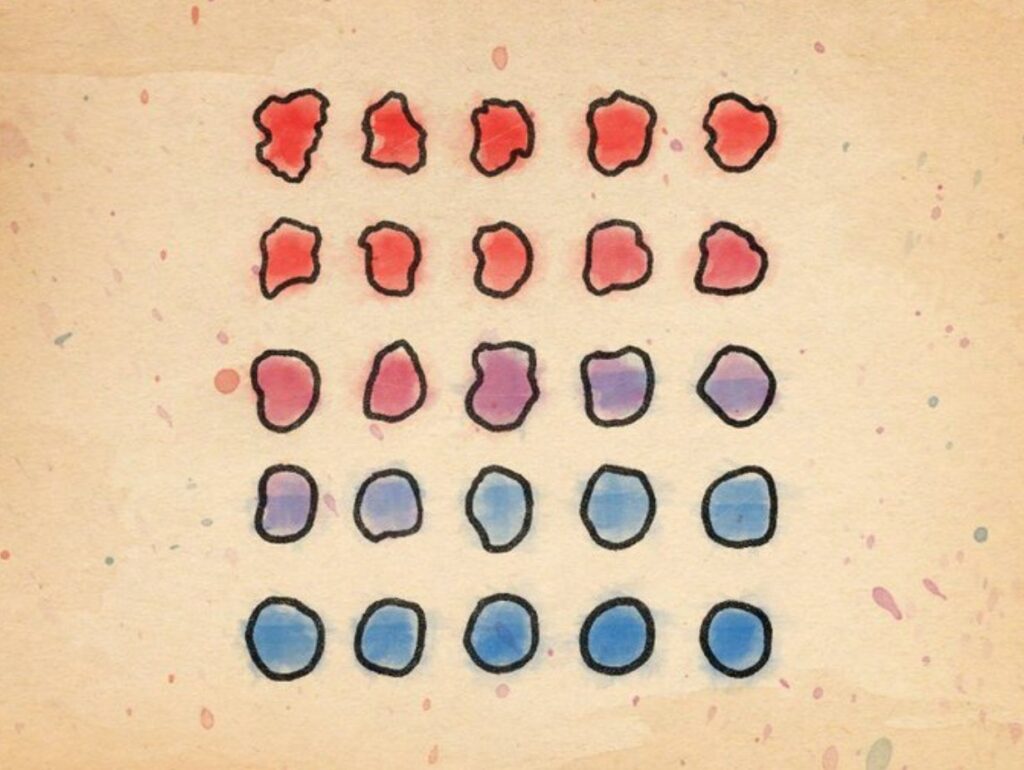“Do 100 Thing” is a phrase I came up with when riffing around the idea of being prolific, making lots of stuff. It’s obviously not an original idea – Nietzsche suggested it, /r/thexeffect could be thought of as “do 49 thing”. I was also influenced by the parable of the pottery class. But for some do100things seems to have caught on with people, so here we are. I have a twitter thread of examples of people being prolific here.

How different people interpret Do 100 Thing:
I’ve talked to hundreds of people about “do 100 thing” – some people get it right away, lots of people warm up to it in time, but most interestingly I’ve started to notice a common feature among those who “don’t get it”, and it is that they have Expectations.
The magic of “do 100 things” is that there’s nothing else in that sentence. But people with Expectations add their own words that aren’t there. They read it as “Do 100 good things well”, or “finish 100 things or you’re an incompetent failure”.
So if I had to design the sentence specifically to counter Expectations, I’d maybe have to add things like…
Do 100 Crappy Things For No Reason, With No Agenda To Live Up To, At Whatever Pace Feels Comfortable, However You Like.
There’s an old video of a bear pacing in a circle. In a sense this bear remains trapped by her Expectations, her learned helplessness, her assumptions about her limits, about what she can and cannot do. and so are the rest of us pacing in circles in our heads.
People tell me things like “When my progress fails to meet my expectations I get disheartened and quit” Or “Repeated failure is scary” – these aren’t final statements, though they are delivered with a tone of finality. They are starting points for investigation.
Where do your expectations come from? Why is it disheartening to fail to meet your expectations? Why are you scared of failing? What if you approached failure with joy? A lot of tenderness and sensitivity is required when dealing with people who are psychologically caged.
The fun of Do 100 Thing – and also the profound thing about it (if you can see it and receive it without grasping too tightly)- is that it allows you to experiment playing in an expectation-free, failure-friendly environment. It’s worth doing this in a domain you don’t care about.
When I search my heart for resonance with people struggling with this, I realize I have my own version of this too. The areas of my life which are most burdened with Expectations are “ironically” the areas in which I perform the worst. I Expect to get strong in days when I lift.
I lift for a month, I don’t get Strong, I get Disheartened, I Quit. It’s silly because I know in every other domain of my life that a slow and steady consistency over years is how you get good anything. But there’s something about Expectations that are interwoven with Trauma.
Aside: I had a breakthrough recently as a musician, which helped me bust a rut I’d been in for about a decade. I Expected to become a better musician and my Expectation kept me from becoming a better musician. I suddenly started becoming better when I Accepted failure & LISTENED.
God, it’s Empty Your Cup all over again. Everything is the same thing.
My Fear of being Unmusical made me avoid Truly Listening to my mistakes, which were the teachers I needed to listen to.
My Fear of being Weak made me averse to testing my strength.
it’s really the same goddamn story every time, lol. I excel in domains where I’m playful and I have no expectations. I allow the world to surprise me and I delight in the surprises. I write my threads one tweet at a time, shot from the hip, no expectations. And joy comes
I did not have Expectations about what would happen when I talked to 100 people about Do 100 Thing. I certainly didn’t expect to make breakthroughs on my OWN Expectations in “unrelated” areas. I was trying to help others and instead they helped me. Life is wild
✱
to be updated
tbc
tbc
“The chief trick to making good mistakes is not to hide them– especially not from yourself. Instead of turning away in denial when you make a mistake, you should become a connoisseur of your own mistakes, turning them over in your mind as if they were works of art, which in a way they are.”
— Daniel Dennett, philosopher and cognitive scientist
